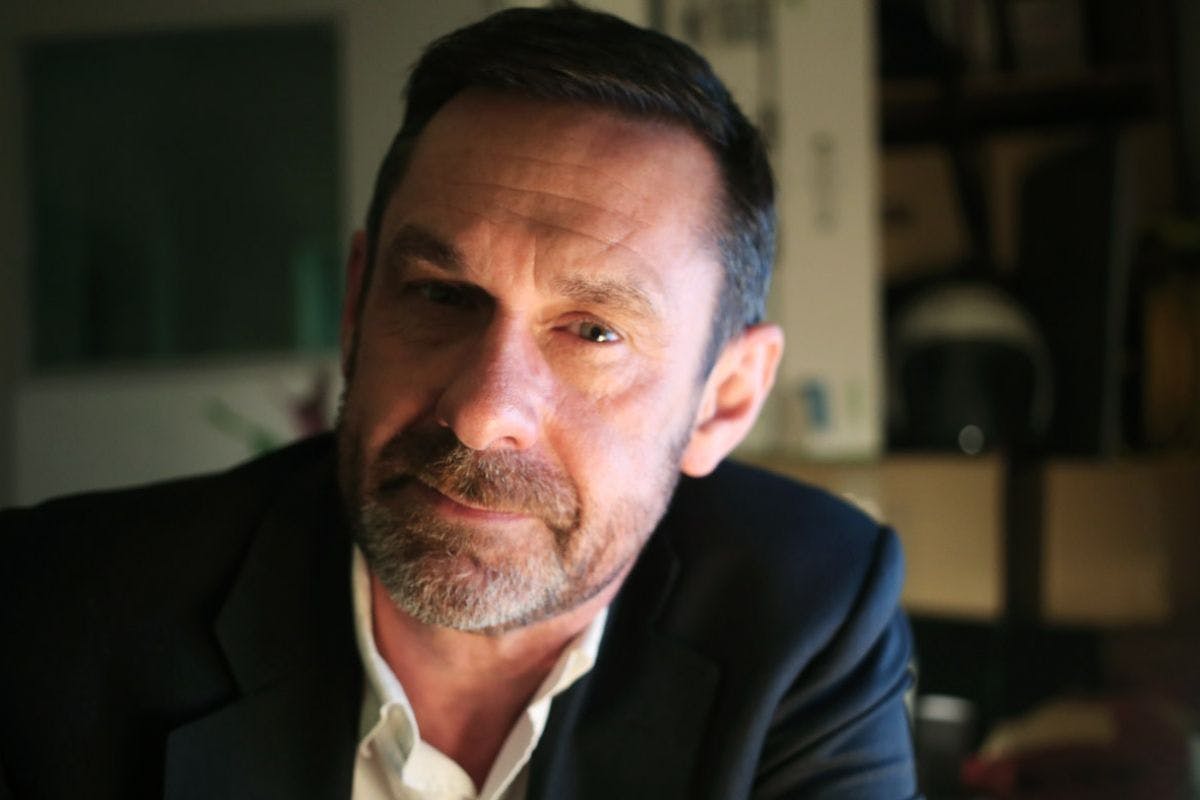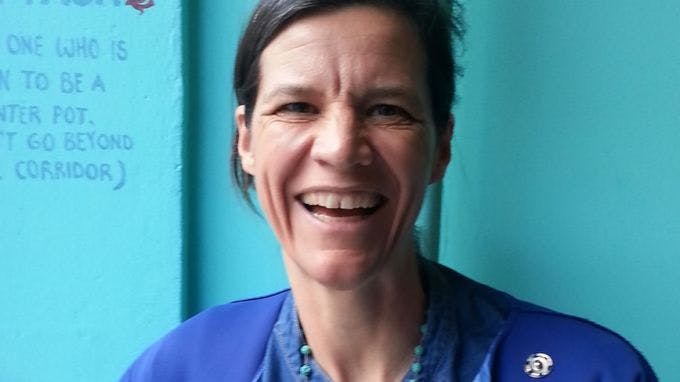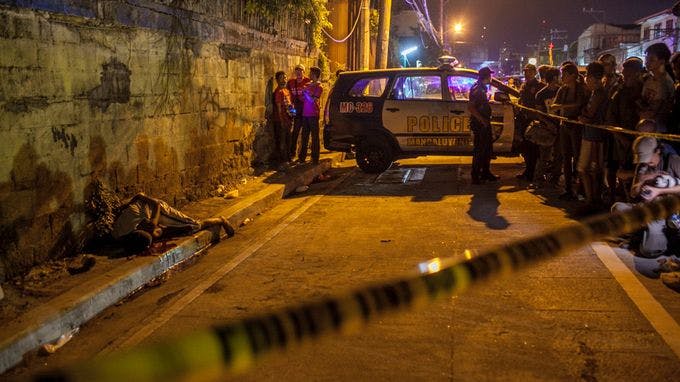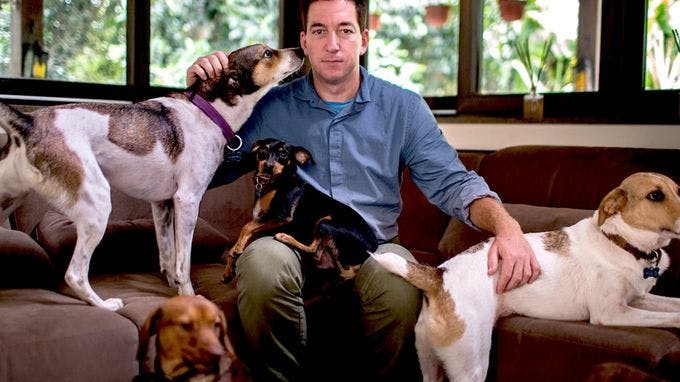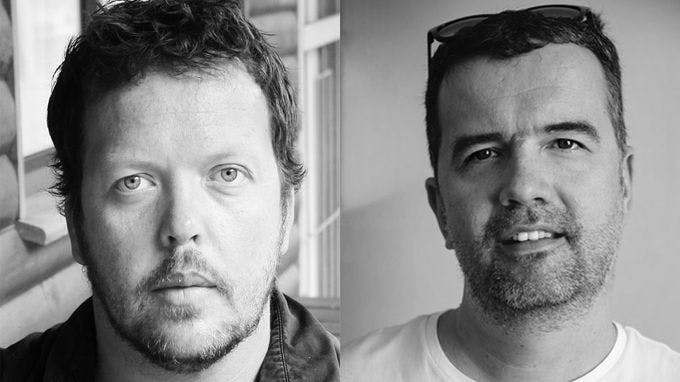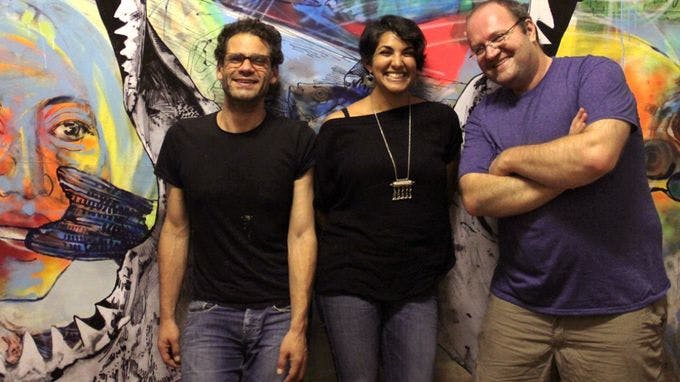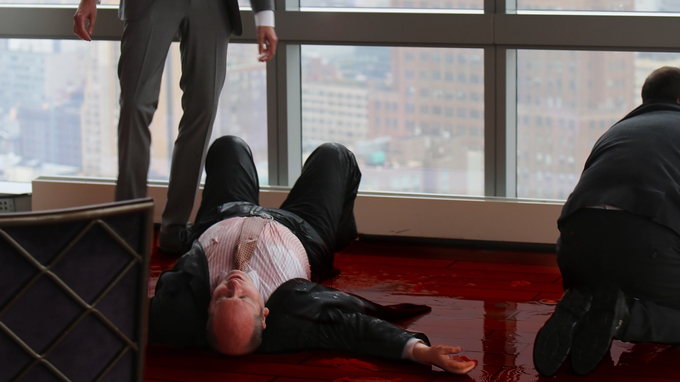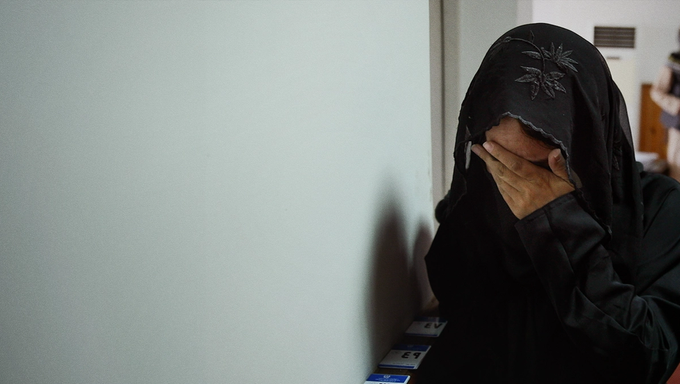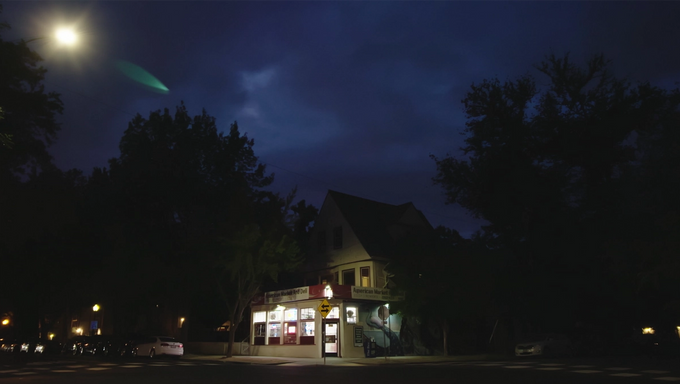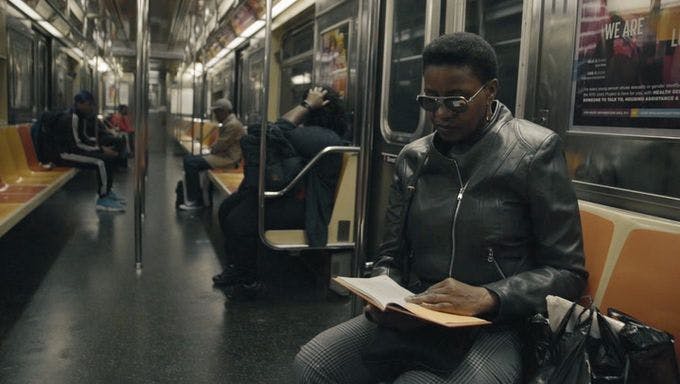As economics editor for Channel 4 News in the U.K. and the author, most recently, of PostCapitalism: A Guide to Our Future, Mason is well-suited to examine the tumultuous recent history of Greece, which has confronted both creditors and the European Union on the austerity measures that have crippled the country’s economy.
Alongside frequent co-conspirator Theopi Skarlatos, Mason tracked the political upheaval in Greece; Skarlatos directed their collaborative four–part series, #ThisIsACoup, while Mason produced and narrated the films. In this wide-ranging conversation, he talks about capturing the moment when hopes were at the highest, striving for access to key Syriza politicians navigating new power and internal party disagreements, and what he hopes other journalists can learn from the film.
How did you first come to follow what’s going on in Greece?
Mason: I was at the Davos conference in January 2010 at the moment that it had dawned on everybody that Greece had a bunch of debt that was completely unpayable. I remember the then-prime minister, George Papandreou, surrounded by journalists, thinking to myself, “Shit, I know what’s going to happen here.”
I have a connection with Greece going back to the mid-1980s — a family connection to the Greek left, when the Greek left was so tiny that its conferences could be in a very small room. By 2010, there’d been a ton of unrest among young people, even in the very good years. During the period of the anti-globalization movement, when Seattle and Prague were going up, the Greeks were massively involved in that.
So I knew two things: one, how badly Greek society would take it if a huge austerity problem was imposed. And two, that the Greek left was serious, that it had spent 20 or 30 years becoming mature, becoming ambitious for power. It was not out of the question that if Greece went into a crisis, it was something that had the power to blow the whole societal system of the country apart.
So I can remember that moment [looking at] Papandreou, thinking, “I have to get back in touch with everybody. This is going to be big.” By May of that year, I was in Athens reporting on the first austerity program, which by now seems relatively mild. But it was enough to effectively bring the government down.
Had you anticipated how things might go down this past January with the elections?
Mason: On election night, me and Theopi looked at each other, saying, “We have to record this, because it’s going to be an epic clash.” We weren’t certain the Europeans would smash [the newly elected government], but two people said to me — sources I won’t name, one on the left of Syriza, one in the very heart of the global banking system — “Are these guys crazy? This is fucking Europe they’re dealing with. This is Goldman Sachs.”
Here are some intelligent voices on the fringes saying there is going to be absolute catastrophe, they’re going to take them on, and the Europeans will destroy Greece. But there’s people in the center of Syriza saying, “Hey it’s fine, we’ve been told — Renzi told us, Obama told us — it’s all going to be fine.” It was a car crash that you could see from the first night of election.
What was your strategy for reporting and capturing the story?
Mason: We didn’t know how this was going to end, or when it was going to end, but we both assumed there would be a two- or three-month period in which there would be a kind of Greek spring. And we knew [after that] there would be some kind of a deal, some kind of a compromise with Europe. And after that’s over, that people will feel deflated. And we’ve got to capture the moment when hopes were at the highest, because there are a bunch of other left movers in Europe who will want to learn from it.
One thing we decided was to push into the countryside and record the deep Greece, as I call it. I’d spent almost 24 hours a day reporting on that January election, and I never even left Athens. So we said number one, deep Greece. Number two, working class Greece.
Then the third thing we wanted was the story of the radical movement. There is a place in Athens called Exarcheia, which is like the old Left Bank combined with the old Lower East Side combined with the old Berkeley of ’68. It’s impossible to get a camera into it, even on a good day, even when you have a hoodie and a big T-shirt with Che Guevara on it — that camera is going to be atomized in the moment, as long as it’s late enough in the day for the guys of the movement to actually be awake.
So we challenged ourselves to just go and push cameras out, to find people who’d want to talk to us. We knew we’d get the government side, but you have to work really hard to get a coherent narrative out of the people.
Did you have any idea of what you were going to hear in the countryside?How did one aspect of your work inform the other? The functioning as a Channel 4 broadcaster and economist, and pursuing this film project?
Mason: I knew that this would be the biggest political economic story of 2015. I didn’t know then there would be a refugee crisis on the same scale — something that doesn’t really feature heavily in the movie. But the fact that I’m a day-to-day journalist means I couldn’t be there all the time, so what I did was put my name to an appeal for funds. I put my name to producing the film. And for me producing is an unusual role because normally I’m reporting, I’m hands-on with the filming. Theopi is a longtime collaborator of mine. I knew if I could just raise the money to put her there in the situation that she could find the right people — we would eventually have a story.
In the interim I had to cover the British election. I had to cover a bunch of other stories that are quite interesting, and one gets sent around to do them. But I realized I couldn’t sleep and do my day job unless I knew I had a handle on the whole Greek situation. That’s why I put myself in the unusual role of producer.
Were you in touch frequently with Theopi, hearing about what she was filming and finding?
Mason: I would consult week by week and say, “What are you doing this week?” Theopi is the kind of journalist who will follow the story, cover those two extremes — pretty pictures, as it were, and rioting, and sometimes the two are the same. I didn’t have to micromanage the shooting — what I did was concentrate on building the journalistic relationship with the key politicians, and that took us some time.
We hear from [then-Finance Minister Yanis] Varoufakis and the other guy, [Euclid] Tsakalotos, who is now the finance minister, fairly early on, but it took us some time to get ourselves accepted and trusted inside the Maximo, which is the mansion of the prime minister, in terms what we were actually trying to do. They were trying to run a country in the midst of a crisis, and they were also a very inexperienced party — they struggled to do the daily news framing that the White House or 10 Downing Street would do.
So having to deal with documentary filmmakers was a complete low order for them. But I spent some time trying to think through how to solve that problem and eventually, in the movie, I think we did.
You solved the problem in terms of gaining access, or deepening the access you had?
Mason: This was a party that eventually split. Between January and August there were internal disagreements going on, and I found it sometimes difficult to understand, because whenever they’re speaking to me on camera, or even off camera, they’re trying to minimize the amount of internal disagreement that there was. In retrospect we know more about it, but at the time, if people say something to you as a journalist, you can only believe them until you have evidence to the contrary.
It was navigating that issue rather than the problems of access. By the time of what we call the “rupture,” the time when they threw off the relationship with the IMF and said fuck you — by that time we had [established] a mutual trust, which enabled me and Theopi to maintain our independence as journalists and draw boundaries. But you know, we’ve had to struggle, fight, hustle, for every time we got the access.
Where do you see the film fitting within the spectrum from news to documentary, from the topical to the historical? You’re putting it out there much quicker than most documentaries, but not as quickly as if it were straight news.
Mason: I’ve done enough news on this — this is certainly not news. It’s not even current affairs analysis. It is a film in four parts that you could quite easily watch, and in its later iterations I think it will be watched as a whole. It is a film in four parts that has the ambition to be cinematic, that has the ambition to also tell a deeper story.
In Syd Field’s book about screenwriting, he said to take a phrase that must sing throughout the film and tape it to your typewriter. And here that phrase is “Europe smashed the first left government in modern history. The politicians made mistakes, but the people were always really strong.” That’s what it’s about.
The film is pure chronology — we did a ton of retrospective interviews with key people, but in the end almost none of it fits in the documentary, because we realized once we got to the edit that we could stay in the moment for almost the entire movie. In terms of the turnaround time, we were clear to our funders that we wanted to make the first draft of history, but as a documentary.
I’m not worried about the fact that other documentaries will come out. I’m not rushing to beat people because I know that we have the story. The only thing that could beat it would be a fictional feature film that could tell the story of all the secret meetings, which we can’t tell.
If I were to sit on the rushes of this and wait five years until everyone has written their memoirs, Syriza is out of power and everyone can come clean about what’s going on, then certainly it will be a more valuable historical document, but it might not be more accurate or fresh. The brilliant thing about working with Laura [Poitras] is that she understood that for some documentaries, timeliness is important. And also that the platform allows you to play with the genre.
Were you uncertain as you went along of where would be your end point? It could have come at the end of episode 3, but the episodic structure allows you to have these multiple climaxes or multiple endpoints, which seems like an accurate depiction of how it all went down.
Mason: The interesting thing for us was the moment that they won the referendum. You know, either they win or they lose and that’s going to be the end of the thing. So they defeated the dragon, and either a bigger dragon will come eat them or the big dragon is going to fly off into the distance and they shout hurray. And that was right — the climax is the moment they win the referendum and the end is the moment that they completely surrender despite having won the referendum. We really knew that.
One of the biggest challenges I had, as somebody who is managing, by that time three crews every day — sitting there coming off the end of my day job at 10 p.m. every night — was trying to take stock of what’s happening and then reorganizing people for the next day. I felt a bit like Mozart in the film Amadeus. He’s trying to write two things at once, and we were doing that.
During that time we’re trying the hardest we can to keep ourselves going, but we knew the biggest climax had already happened, and we said again and again how many more shots of people queuing at ATMs do we need? We keep saying the queues don’t differ — there is no dynamic to them, there is just this horrible status like economic snowfall, and it makes everything quiet.
Nevertheless it was still valuable that you were filming. There was more of the story to tell. And you were the right people to tell it.
Mason: I’m very keen to leave behind in Greece some greater capacity to do this kind of journalism. Nine-tenths of the Greek broadcast and print media is hostile to Syriza, hostile to social justice, and has been described at oligarchic, corrupt, and totally biased. The other tenth are really good journalists who have had no money for five years.
The left government comes into power, and many of them have personal skin in the game of that left government and therefore when it comes to asking difficult probing questions and thinking really objectively — I wouldn’t expect them to do that because they are reliant on the good will of the mass movement that has brought this government to power. The kind of media that needs to be in Greece is independent of the left government, critical of it, asks it tough questions, but also is not in the pocket of oligarchs, money launderers and criminals who have been running that country for 70 years.
I am determined to leave behind teams of people who watched how Theopi and I worked. We’re both BBC-trained journalists — watch how we work and understand that it is possible. Objectivity towards the issue and responsibility towards your participants — basic, obvious public service journalism that barely exists in Greece. One of the first things I want to do when I get this edit out of my hair is get back there and do seminars around the movie, around the film with the people who were involved with it. What did we learn and what can we cascade down to our fellow colleagues in the Greek media?
How would you anticipate the film might be received in Greece, as well as the type of journalism you’d like to see pursued there?
Mason: Whatever the beauty of the shots, however brilliantly constructed the narrative is, the mere fact of seeing behind the scenes in this government is such a head fuck. Because no other media have got it.
Everybody who is Greek that’s seen rushes or excerpts from this, they tend to clutch at their throat and go, “Wow, I’ve never seen this. I’ve never seen the prime minister’s office. Who knew the chief of staff has a bust of Lenin on his desk?” It’s going to do their heads in, but after it does their heads in, I want them to say, “Well, what happened? What did we learn from that?”
#ThisIsACoup, Episode I: “Angela, Suck Our Balls”
#ThisIsACoup, Episode II: To Pay or Not to Pay?
#ThisIsACoup, Episode III: Oxi — The Greek Word for “N” o
#ThisIsACoup, Episode IV: Surrender or Die
